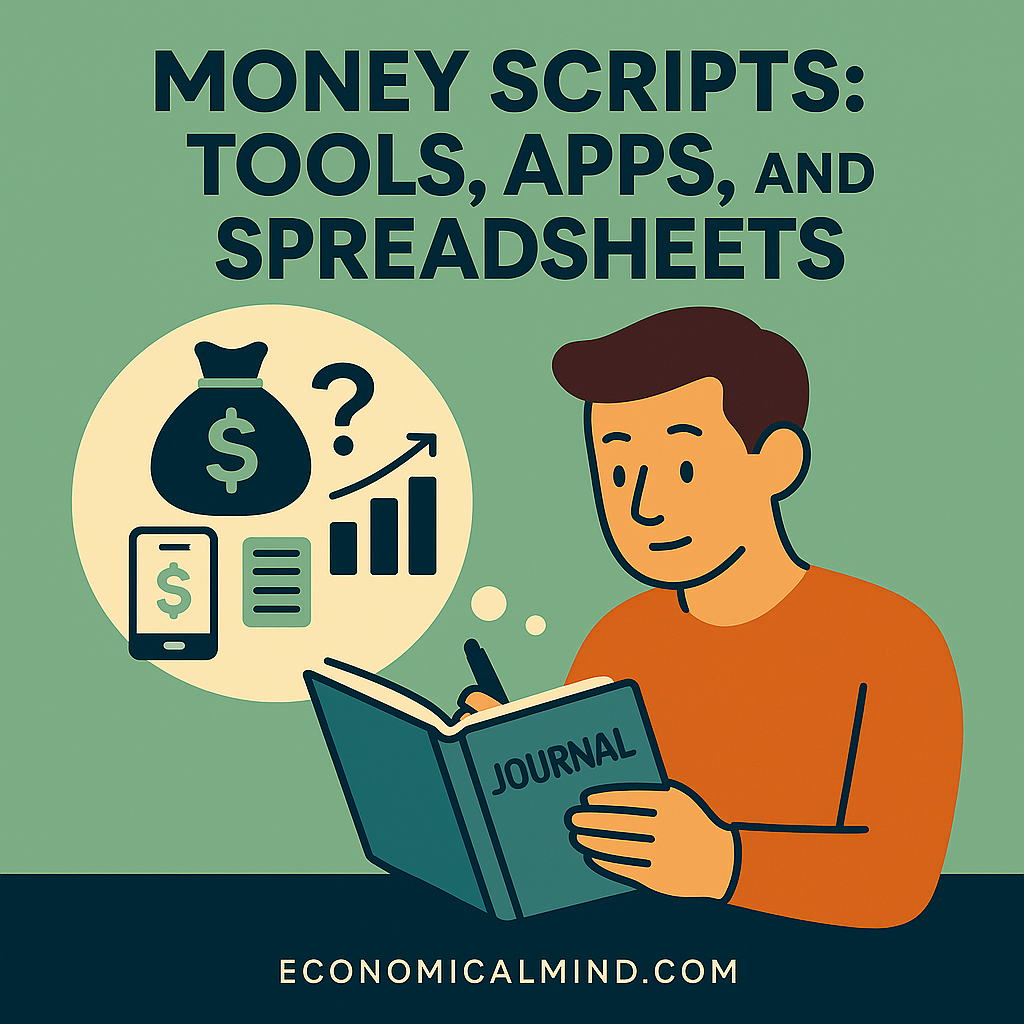
Money scripts are the unconscious beliefs and stories we tell ourselves about money—often shaped by our upbringing, experiences, and culture. These internal “scripts” influence how we save, spend, invest, and even feel about money. The good news is that by becoming aware of your money scripts, you can rewrite them for a healthier financial mindset. Today, there are digital tools and exercises that can help you uncover and transform these habits for good.
Understanding money scripts
Money scripts are deeply ingrained beliefs such as “money is the root of all evil” or “I’ll never have enough.” While these ideas may seem harmless, they can quietly guide your financial behavior. For instance, someone who believes money causes problems may avoid investing or asking for a raise. Another person who equates wealth with self-worth might overspend to maintain appearances.
Recognizing these patterns is the first step to taking back control.
Common money scripts to look out for
Research by financial psychologists identifies four common types of money scripts:
• Money Avoidance – Believing money is bad or undeserved.
• Money Worship – Thinking money will solve all problems.
• Money Status – Linking financial worth to personal value.
• Money Vigilance – Being overly cautious or anxious about finances.
Once you recognize which scripts resonate with you, you can start challenging and replacing them with balanced, empowering beliefs.
Tools and apps to explore your financial mindset
You can use digital tools to identify and track your money beliefs just as easily as you would a budget. Try:
• PocketSmith – Visualizes your financial future based on current habits, helping you see how your mindset impacts outcomes.
• Monarch Money – Combines budgeting with goal setting, encouraging reflection on emotional spending patterns.
• YNAB (You Need a Budget) – Helps break cycles of stress by teaching proactive money management and mindful spending.
• Reflectly or Notion Journal Templates – Perfect for journaling your money thoughts and emotional triggers.
These apps blend financial tracking with self-awareness—ideal for balancing logic and emotion.
Using spreadsheets to build awareness
A simple spreadsheet can also help you identify patterns between your spending and emotions. Create columns for:
• Date / Purchase
• Amount
• Reason for Spending
• Emotional Trigger (Before / After)
By reviewing this regularly, you’ll begin to notice when emotions drive spending decisions. This awareness helps you make more intentional choices over time.
Tips for rewriting your money story
• Journal daily about financial emotions—what triggers fear or excitement about money.
• Challenge limiting beliefs—ask if they’re true, and where they came from.
• Replace old scripts—swap “I’ll never be good with money” for “I’m learning to manage money wisely.”
• Seek accountability—use apps that prompt reflection or join an online community focused on financial wellness.
Common pitfalls to avoid
Don’t expect instant change. Money beliefs form over decades and take time to shift. Also, avoid comparing your progress to others—your financial mindset journey is personal. Stay consistent with journaling and reflection instead of relying solely on numbers.
Key takeaway
Money scripts shape your financial behavior more than you might realize. The combination of awareness tools, budgeting apps, and mindful tracking can help you rewrite these beliefs. By becoming more conscious of your financial story, you can make choices that align with your values instead of your fears.
